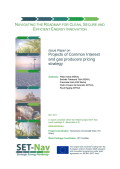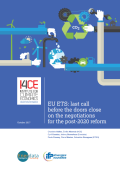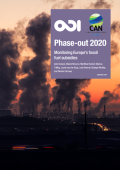



The adoption of the Paris Agreement at the end of 2015 and the EU’s intended nationally determined contribution (INDC) have confirmed the EU’s commitment to achieve decarbonisation by 2050. Transport accounts for about a quarter of EU greenhouse gas (GHG) emissions, representing the second-largest source of GHG emissions in Europe after the energy sector. The transport sector will play a significant role in the EU’s efforts to decarbonise its economy in line with its international commitments.
The purpose of this report is to examine different EU policy options to address transport emissions, with a special emphasis on passenger cars. It ‘thinks through’ the options that are currently assessed in the EU and considers how they could be put together in a comprehensive framework. The report concludes with a number of measures to lead EU transport decarbonisation policy. A distinction is made between i) no-regret options and ii) measures for consideration.
